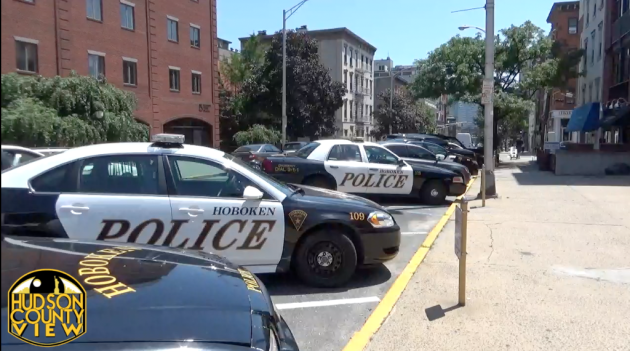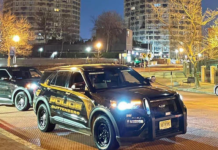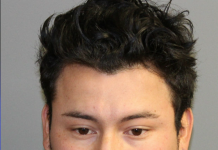The Hoboken Police Department began participating in the statewide “Drive Sober or Get Pulled Over” campaign to combat the drunk driving during the holiday season on Friday and will keep the endeavor going through New Year’s Day.Â
By John Heinis/Hudson County View
Law enforcement officials from the City of Hoboken will be cracking down on drivers impaired by alcohol or drugs as part of the annual end of year “Drive Sober or Get Pulled Over†statewide campaign.
Local and state law enforcement officials will conduct saturation patrols and sobriety checkpoints looking for motorists who may be driving while intoxicated.
The national “Drive Sober or Get Pulled Over†effort endeavors to raise awareness about the dangers of impaired driving through a combination of high-visibility enforcement and public education.
“This is a critical law enforcement program that can save lives during a time of the year when impaired driving traditionally increases by nearly 10 percent,” Police Chief Kenneth Ferrante said in a statement.
“People that choose to get behind the wheel after drinking alcohol or using drugs pose a grave danger to all roadway users and this initiative is designed to bring attention to this important issue.â€
In 2014, 27 percent of all motor vehicle fatalities in New Jersey were alcohol-related. Nationally, more than 10,000 people die each year in drunk driving crashes. The societal costs associated with these crashes is estimated to be $37 billion annually, the city said in a news release.
Law enforcement agencies participating in the Drive Sober or Get Pulled Over 2015 Year End Holiday Crackdown recommend spending the night at where the party is being held, contacting law enforcement if you see an impaired driver and to use mass transit, a taxi or a designated driver to arrive at your destination.
The West New York and North Bergen Police Departments are also involved with the “Drive Sober or Get Pulled Over Campaign.”










38 States have ruled in favor of sobriety checkpoints. Since It’s easier to name the places that don’t have checkpoints than the places that do. You can use the list provided below to determine if you may be subject to police roadblocks while driving in your city.
Alaska – No state authority
Idaho – Illegal under state law
Iowa – Statute authorizing roadblocks does not permit sobriety checkpoints
Michigan – Illegal under state constitution
Minnesota – Illegal under state constitution
Montana – State law only permits “safety spotchecksâ€
Oregon – Illegal under state constitution
Rhode Island – Illegal by state Supreme Court decision
Texas – Illegal under state’s interpretation of the U.S. Constitution
Washington – Illegal by state Supreme Court decision
Wisconsin – Illegal under state law
Wyoming – Illegal under interpretation of roadblock statute.
There is no evidence DUI checkpoints keep you safe. DUI checkpoints are seen as necessary by governments, individuals and organizations such as MADD(Mothers Against Drunk Driving). By stopping drunk drivers before an accident occurs, they claim to have made the world a safer place. In reality what they have done, is punish someone who victimized no one.
1.They can’t prove to have made anyone safer.
2. They are expensive and we are forced to pay for them.
3. DUI checkpoints open the door up to fish for other violations to generate revenue with. At these roadblocks DUI arrests are usually not the primary focus of police they are just a bonus.
4. Operations organized around preventing potential accidents in the future only open opportunities for police to further criminalize behavior that although reckless and irresponsible renders no victim.
5. It makes investigating real crimes even harder. Assigning police to checkpoints removes them from stopping or investigation crimes with real victims. When revenue generation becomes the main focus of law enforcement, the resources that could be used to prevent or investigate actual crimes are lessened and often times violent crimes go unsolved.
Don’t think I am defending drunk driving. I already admitted in this article that it is reckless, irresponsible and should not become routine in your daily endeavors. I am however, defending the idea that without a victim there cannot be a crime. The conclusion we should all come to is, we are responsible for our actions regardless of intoxication.